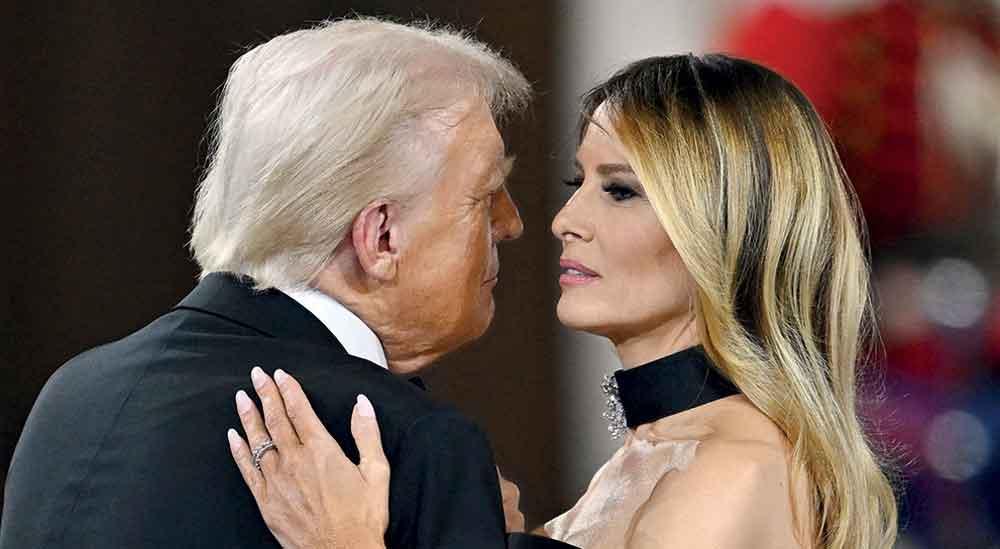
Netanyahu Government Has Already Failed with Trump; There’s No Reason This Will Change
(Israel) on 20 January 2025
by Ayelet Shaked (link to original)
Donald Trump’s election win was resounding. United States citizens voted against the extremist Woke culture that led to instability and alienation; they chose the option that appeared more sane and logical. The election presents Israel with a host of opportunities as well as challenges.
Fortunately, Trump is surrounded by a clearly pro-Israel staff, from his team of close advisers, including the Republican Party leadership, to a political base that includes tens of millions of evangelicals whose strong support for Israel comes from their religious faith. That said, it is important to remember: Trump, like any true leader, focuses his policy first on the interests of his country, the United States; only then does he worry about allies. Therefore, a critical national mission for the Israeli government is exploiting the opportunities at our doorstep and overcoming these challenges with the new administration.
To Aspire to a Significant Upgrade
In Trump’s first week in office, Israel must act quickly to remove import barriers on AI chips. These restrictions, imposed late in the Biden administration, placed Israel on the list of countries facing regulatory restrictions on all things related to importing advanced technology from the United States.
In contrast, countries such as Canada, Great Britain, Germany and France enjoy a full and open market. The AI field is not only an economic growth engine, but also the key to global control in areas of security, health and advanced technology. In a world where technology is power, Israel must not be left outside the playing field. Just as U.S. restrictions destroyed the offensive cyberattack industry in Israel -– a strategic weapon of the first order -– restrictions on the importation of AI chips threaten Israel’s status as a global technology powerhouse.
Israel must strive to significantly upgrade its security cooperation with the United States. The goal should be ambitious: to reach a model of full cooperation such as the partnership between the United States and Canada. Such a level of cooperation would include removing technology export barriers, with an emphasis on the offensive cyber warfare field. The current memorandum of understanding, signed during Barack Obama’s term and which set the scope of security assistance, is expected to end in 2028; Israel must see that the agreement is renewed. With the new agreement, Israel must ensure the continuation of technology and security cooperation and financial assistance essential to maintaining our strategic superiority in the region.
The diamond in the crown: ending the Iranian nuclear program. There has never been a better opportunity to act against the nuclear facilities of our greatest enemy. The Iranian air defense systems have been damaged, and the systems in Syria that were part of its defense envelope were completely destroyed. Therefore, time is running out: Iran already has enough enriched uranium to produce several nuclear bombs and is concurrently working to develop necessary weaponization systems.
The major danger is that Trump’s Washington will try to reach an agreement with Iran, which means foot dragging and time. The job of the prime minister of Israel is to convince Trump to allow an attack on Iran -- even to lead it. The Iranian problem is not only Israel’s problem, but a global problem. A nuclear Iran will lead to a nuclear arms race across the Middle East.
Israeli Elections First
Netanyahu failed in his primary job in the war against Hamas to convince the U.S. administration that widespread humanitarian aid only prolongs the war, causing more death on both sides. At the same time, he did not successfully translate his close relationship with Washington into practical results. His policies failed to achieve the necessary response, either in dealing with Iran or in the broader international arena. We hope that he won't fail in this mission before he is replaced during the election.
We must still effectively address the International Criminal Court at The Hague. Existing sanctions are not enough; the United States must impose sanctions on the bank accounts of the criminal court itself, its judges and employees so that the organization will cease to function as long as it conducts investigations against Israel. The court would be unable to pay its employees if sanctions were imposed.
The Trump administration must lift sanctions imposed on settlers and organizations in Judea and Samaria by the Biden administration. This was an extreme and unfair step that goes against the stated values of freedom, initiative and a free market –- values upon which the United States was founded.
These sanctions discriminate against private business and individuals only because of where they are located while they completely ignore the political and historical complexities of the region. Erasing this disgrace will not only correct a moral injustice, but will also send an unequivocal message to the world: The United States stands beside Israel in the struggle for its historic rights and in strengthening its sovereignty. This step will also strengthen the Israeli economy and the entire region against external pressures.
Saudi Arabia or Sovereignty
Sovereignty over Area C (the West Bank) is an ethical and principled goal, but Trump has already said that his administration will focus on expanding the Abraham Accords and, as we know, an agreement with Saudi Arabia contradicts sovereignty.
The Abraham Accords not only established Israel’s place in the region, but also opened the gates to unprecedented cooperation in the areas of security, energy and trade. In this respect, the prime minister’s first job is to successfully sign normalization agreements without pledging to establish a Palestinian state; the majority of Israelis today understand that this issue has not been addressed.
A Different Government
As we’ve said, a variety of opportunities and critical national missions lie at Israel’s doorstep, but the current government is not working to take advantage of them and incapable of doing so. We remind readers that Netanyahu and his government failed to convince the Biden administration to refrain from providing widespread humanitarian assistance, which only prolonged the war; they failed to convince Trump to improve the hostage deal; and there is no reason to think they will succeed in future missions.

